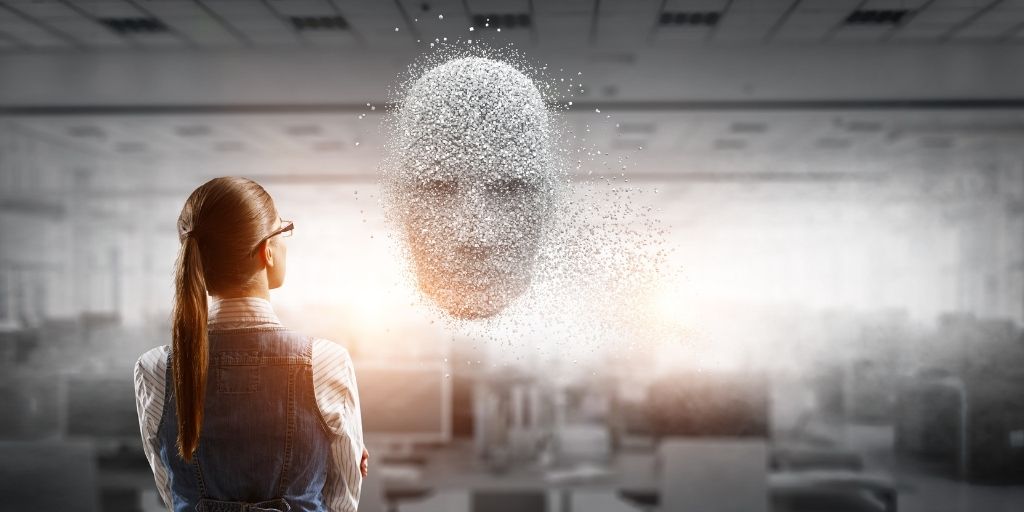
What to Learn from Those Who Embrace AI
If you worry about how the growing specter of artificial intelligence (AI) will affect your business and your employees, you’re not alone. Like other technological advances that promise to transform the economy, AI has both supporters and opponents. Some business professionals embrace AI, while others fear a devastating impact on jobs.
Despite the uncertainty, AI is here to stay.
That’s not to say that the worries aren’t justified. Even those who accept AI acknowledge that millions of traditional jobs will be lost in the short term.
But those individuals also predict that it will boost the economy and ultimately add job opportunities in the long run. Even if the transition is painful, the ultimate benefit outweighs the cost.
In a previous blog, we looked at how AI is changing digital marketing. Here, we’re going to discuss what we can learn from those who embrace AI. That includes using it to improve performance and tackle simple tasks so that people can focus on things that require emotional intelligence.
Why Many Business Professionals Fear AI
You only have to look at recent history to see how new technology has affected jobs. Department and big-box stores began to close as more people started shopping online. The problem accelerated during COVID-19 as businesses adapted to contactless shopping. This pushed the technology faster.
In the 1980s, when robots began to take over assembly line jobs, a wave of unemployment swept the automobile manufacturing industry.
Even optimists predict a colossal disruption of the labor market due to AI.
The PWC’s report Will Robots Really Steal Our Jobs? estimates that around 38% of current jobs may be lost in the United States by 2037 because of automation and AI.
AI will primarily affect manufacturing, warehousing, and transportation jobs. But no sector is immune. What’s more, unemployment in traditional sectors will accelerate as AI becomes more autonomous.
What to Learn from Those Who Embrace AI
So, why are those who embrace AI so upbeat about the future?
Countless studies predict that while temporarily disrupting the economy, AI will end up creating more jobs than it destroys.
- According to the PWC report, AI will boost the global economy by $15 trillion or 14%. The report also predicts that the jobs created will offset those lost.
- The World Economic Forum’s The Future of Jobs Report 2020 predicts that machines will displace 85 million jobs by 2025. But 97 million jobs will be created, particularly those that require critical thinking, analysis, and problem-solving.
From a historical perspective, job losses from department stores were ultimately balanced by a growth in the e-commerce sector. According to a study by the Federal Reserve Bank of New York, from early 2013 to 2017, department stores lost 80,000 jobs, while non-store retailers added roughly 100,000.
“It’s natural to wonder if there will be a jobless future or not. What we’ve concluded, based on much research, is that there will be jobs lost, but also gained, and changed. The number of jobs gained and changed is going to be a much larger number.”
— James Manyika, chairman and director, McKinsey Global Institute (MGI)
What Tasks Does AI Do Best?
AI is great at performing goal-oriented tasks and choosing the best result from several alternatives. It’s also well suited for solving step-by-step problems, using algorithms to achieve an objective.
When it comes to analyzing vast amounts of data and making complex calculations, AI can outperform humans every time.
As Google and Tesla showed, AI can even use deep learning to build skills like driving a car.
Machine learning helps where it can apply knowledge to answer queries. For example, it can respond to customer queries. Not only that, but it can learn customer preferences to offer solutions to individual problems.
Why Emotional Intelligence Is Still Important

The human brain isn’t simply a machine adept at solving logical problems. Yes, we can solve math problems and use logic to draw conclusions. But human intelligence has evolved to become specialized in survival. That includes cooperating socially and recognizing and responding to threats instantly. It also involves manipulating our environment to our advantage.
- Social skills require emotional intelligence and empathy. One of our specialties is reading nuances in body language and verbal cues to understand others’ emotions.
- Survival has required that we make leaps of faith and draw conclusions, often without experience or knowing all the facts.
- We build on our unique experiences to interpret and make sense of the world. Intuition allows humans to take shortcuts, making connections between what may seem like unrelated facts.
While AI can mimic empathy, humor, and so forth, the sophistication of social interaction is nowhere near enough to match human beings.
Job opportunities that require emotional intelligence and creativity are likely to grow. For example, we’ll see positions opening up that require leadership, programming, management, strategizing, and customer service.
Why You Should Embrace AI for Your Business
As a business owner, you want to stay competitive. And that means you need to adapt, using every tool at your disposal. Here are 2 immediate advantages that you can enjoy when you embrace AI for your business.
1. Less Time Wasted on Menial Tasks
Many day-to-day tasks are routine and repetitive. Those who embrace AI point out that it can be used to handle those jobs more efficiently. Releasing workers for more tasks that require creativity and human interaction improves efficiency and job satisfaction.
2. Better Customer Service and Satisfaction
AI can improve the customer experience by efficiently processing transactions and delivering services. For example, AI can check out customers’ purchases and make returning unwanted products a painless experience.
Satisfied customers will be much more likely to return to buy products from you and spread the word about your stellar customer service.
Chatbots can answer customers’ basic queries. Customer service agents who can negotiate and deal empathically with tough questions can handle the more complex requests.
3. Easier Decision-Making
AI is now critical for industries that rely on spotting trends and performing accurate forecasting to make decisions quickly. Such industries include insurance, market trading, digital marketing, and advertising.
Without AI, analysts and managers must consult computer-generated graphs and summary reports, making it harder to respond to changes in real time. But when you embrace AI, decision-making becomes a much easier task.
How Employees and AI Can Work Together
A Harvard Business Review study of 1,500 companies found that performance can significantly improve when employees and AI work together.
“Through such collaborative intelligence, humans and AI actively enhance each other’s complementary strengths: the leadership, teamwork, creativity, and social skills of the former, and the speed, scalability, and quantitative capabilities of the latter.”
— H. James Wilson and Paul R. Daugherty, Collaborative Intelligence: Humans and AI Are Joining Forces
While AI can improve efficiency, working with human operatives helps balance the need for human understanding.
For example, AI can be used to collect and analyze data so that…
- Managers and analysts can make strategic and tactical decisions
- Customer service agents can respond better to complaints and queries
Ultimately, integrating the two can lead to a dramatic improvement in performance and customer experience. Each one plays a role.
Final Thoughts
Many business professionals are concerned about the impact of automation on jobs. Even those who embrace AI acknowledge traditional jobs will be lost during the upheaval. But they also understand that it will ultimately do more to help businesses in the long run.
The key is to learn from those who embrace AI and prepare for change.
- Be ready to train employees for jobs that require strategic thinking, problem-solving skills, and human interaction.
- Integrate your AI with human operators to maximize the benefits of both.
- Use AI as an opportunity to improve job satisfaction by using it to do mundane jobs.
Taking action now will make your business more resilient to the changes that AI will bring. It will also allow you to enjoy the significant benefits of machine learning in the future.
Learn more about how human and AI integration can improve the customer experience HERE. If you want to create a solid marketing strategy that uses AI to your advantage, we can help. To get started, request a FREE 50-Point Marketing Audit.

